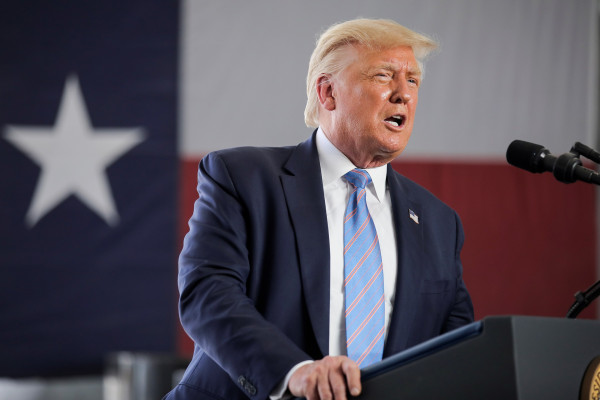Donald Trump Slams Universal Vote By Mail And Suggests Delaying The Election

Donald Trump on Thursday said the general election which is slated to take place in Nov., this year might be postponed citing claims that mail-in-voting will lead to fraud. While these claims are not backed up by pieces of evidence, it is worth noting that as the POTUS, he lacks the authority to delay the election.
Trump went on to falsely claim that the United States is sending out millions of universal mail-in ballots, and echoed a conspiracy theory about other countries falsifying ballots via a tweet last week. The president raised questions about where the universal mail-in ballots are going and who are they being sent to.
The president could be referencing California as it has already decided to send a mail ballot to the state's more than 20 million registered voters before the presidential election. A myriad of other states sent out ballots to all registered voters, with none of the states sending ballots out to people who are not registered to vote, according to National Conference of State Legislature (NCSL).
Trump accused California of sending ballots to everyone regardless of who they are or how they got there. Twitter added a warning that reads "Get the facts about mail-in-ballots" to that tweet shortly after it was published.
The president repeated concern that he and Attorney General William Barr have raised about foreign countries manipulating the ballots. Neither Trump nor Barr explained how they think this was possible despite the several safeguards election officials have in place, such as signature verification and barcodes, instead they keep insisting that the threat was obvious.
Referring to the expansion of mail-in-voting, Trump claimed that the imminent election will be the most inaccurate and fraudulent election in history. He deemed it a great embarrassment to the country and tweeted about delaying the election until people can properly, securely, and safely vote.
It is worth noting that the president does not have the authority to change the date of the election. The United States' Constitution gives the authority to decide the times, places, and manner of congressional elections to Congress. Moreover, Congress can also determine the date electors will cast their votes for president.
A Congressional Research Service report from March shows Congress has since 1845 instructed states to appoint presidential electors on Tuesday (after first Monday in Nov.), representing the date which voters in every state need to cast their ballot for president. The 20th Amendment to the Constitution notes that the terms of the president and vice president end at noon on Jan. 20.













